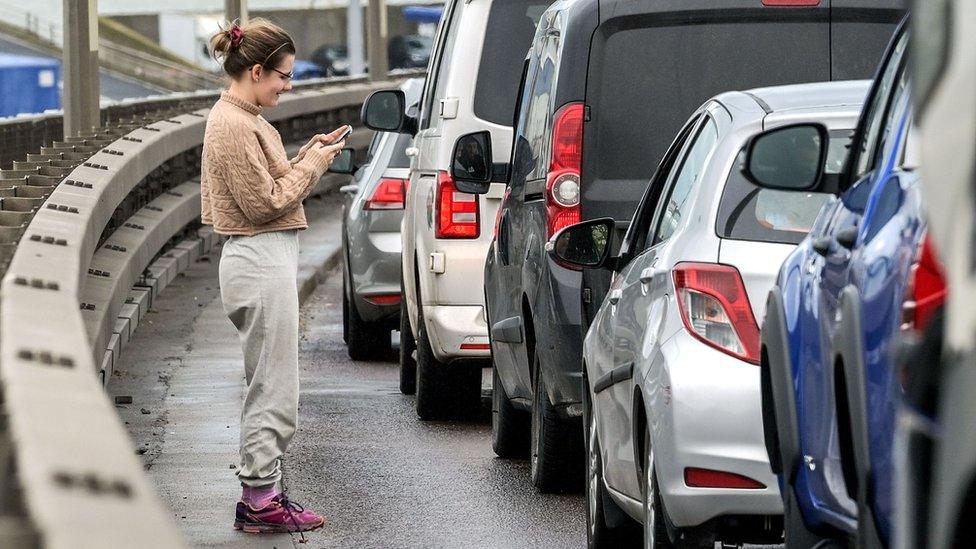Port of Dover: We've done all we can to stop queues
- Published
- comments
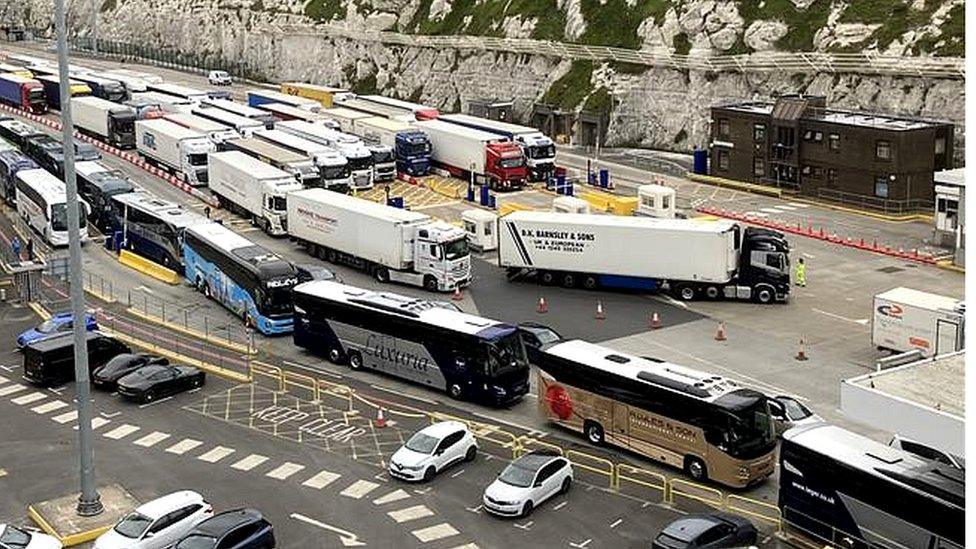
Gearing up: Coaches and lorries queue at the Port of Dover ahead of the bank holiday weekend
The Port of Dover's boss has said it has done "everything we can" to prevent travel delays over the upcoming bank holiday and school half-term break.
Some coach passengers faced 15-hour delays to board ferries to France in the lead up to Easter.
But Port of Dover chief executive Doug Bannister said it has since taken steps to stop traffic getting snarled up in post-Brexit border checks.
Up to 5,500 cars and 350 coaches are expected at the port on Friday.
"So it is quite a busy day," Mr Bannister told the BBC.
Traffic control measures have already been put in place to manage the flow of lorries travelling to Dover on the M20.
The Kent Resilience Forum, which manages emergency planning for the county, said: "The passenger forecasts from both Eurotunnel and the Port of Dover indicate an extremely busy period for cross-Channel traffic over the bank holiday weekend at the end of May.
"This also coincides with schools in the UK breaking up for half-term."
This weekend will be a key test for the Port of Dover, which has been dogged by long tailbacks of vehicles during busy holiday periods.
Mr Bannister admits that in the past images of queues have put people off travelling through the port. "Certainly there was some trepidation in the market," he said. "But the volumes came back."
However, problems have persisted.
Most recently in late March and early April, ferries said they had received 15% more coach bookings than they expected while at the same time, bad weather disrupted sea travel, leading to severe delays.
Mr Bannister admits: "It wasn't a great experience, particularly for people that had saved up to travel abroad, or the school groups of kids going across maybe on their first trip, it was not good."
'Dreadful'
For Matt Barnes, director at Barnes Coaches, travelling through Dover in April was an endurance test for his drivers and passengers.
His company was operating four coaches over the Easter weekend. The first arrived on Friday, an hour-and-a-half before the ferry was supposed to set sail - and was still waiting 15 hours later.
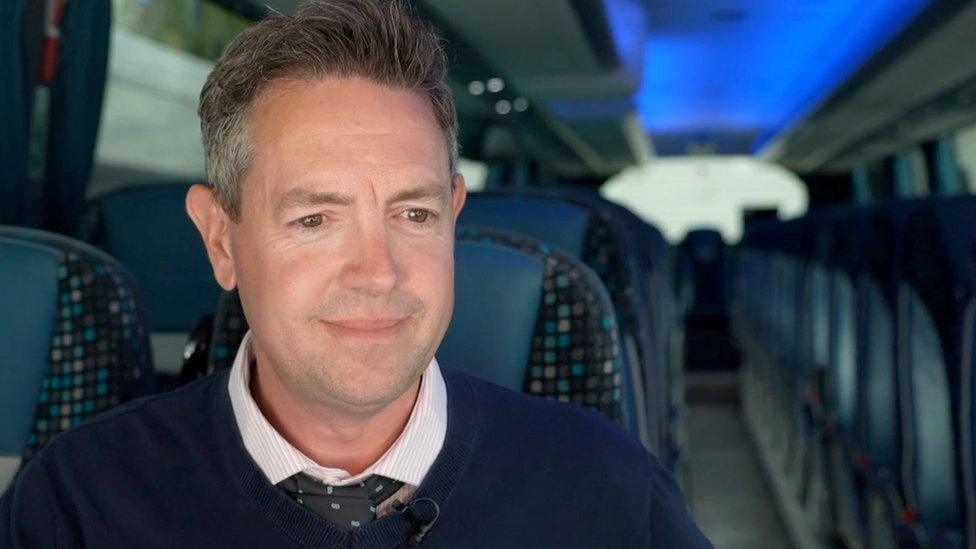
Matt Barnes, director at Barnes Coaches, said no-one wants a repeat of the scenes over Easter
"By the time they actually got to a ferry, the port couldn't accept the coaches, they were sent away to a service station," he said.
"The service station hadn't been warned they were coming. There's hundreds and hundreds of people there. All the food outlets are closed, the toilets are overflowing, there's no provision for anybody. So the children were pretty much on the coaches for the 15 hours waiting to get on the ferry."
He added: "The scenes that start these holidays are dreadful. No-one wants to repeat that and people are scared of travelling by ferry into Europe."
However, Mr Barnes said he has had reassurances from the Port of Dover that it will be able to cope with the number of coaches.
"It is extremely important for us to pass on to our customers that they can trust this way of travelling into Europe," he said.
Brexit
A key issue for the Port of Dover is the time it takes for travellers to pass through border checks following the UK's departure from the European Union.
It now takes up to a minute-and-a-half to get a car through the port's border checks, which are staffed by France's Police aux Frontières. For coaches, it can take up to 15 minutes compared to a "few minutes" in pre-Brexit times.
Mr Bannister said: "Right now, what has to happen is coach passengers need to disembark the coach, present themselves in front of Police aux Frontières to have their passports reviewed, any security questions that need to be asked are asked and [the passport] is stamped and [they] get back on the coach."
"There's no doubt that the additional checks are a factor in the queues," he said.
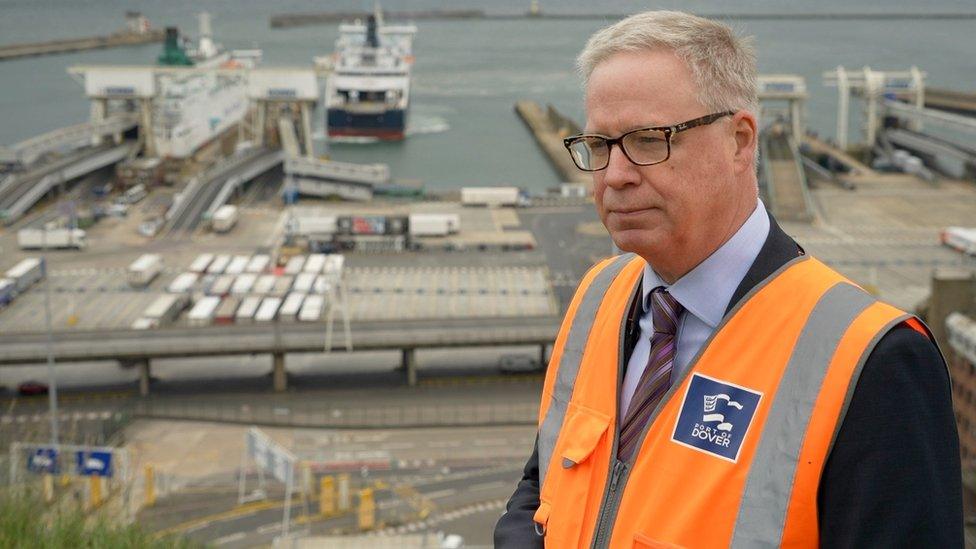
Port of Dover chief executive Doug Bannister
But he said that the port has taken a number of measures to speed things up since Easter.
It has reviewed all the traffic volumes to understand exactly what to expect.
He also said that the ferry operators have worked closely with coach companies to smooth the flow of traffic. This should ensure that coaches don't arrive at the port all at once.
"We created a new processing centre in the western part of the port to better sequence the traffic coming into the port and to the advanced passenger information checks," he said.
It also has a covered area where coaches will go for passenger passport checks.
"And then finally, what we've done is we've worked with all of our port partners, but specifically Police aux Frontières, to ensure that the resource levels are what we require, to make certain that we can maintain the flow rates. And they responded very well," he said.
The port could ask the ferries that operate out of Dover to limit the number of passengers they book onboard, and Mr Bannister said: "We've had a look at it."
But he said: "But to be fair, what I would rather do is make certain that collectively, we come together and try and service the demand of the coach industry as best as we possibly can."
Even with all this, however, Mr Bannister admits that "it would be foolish" to guarantee that there will never be queues at the Port of Dover.
"Because one of the things that we have found is that things happen, right," he said. "But what I can say is that we have put in place all the measures all the processes installed new facilities, in the best effort to make certain that those queues cannot happen again."
Related topics
- Published12 May 2023
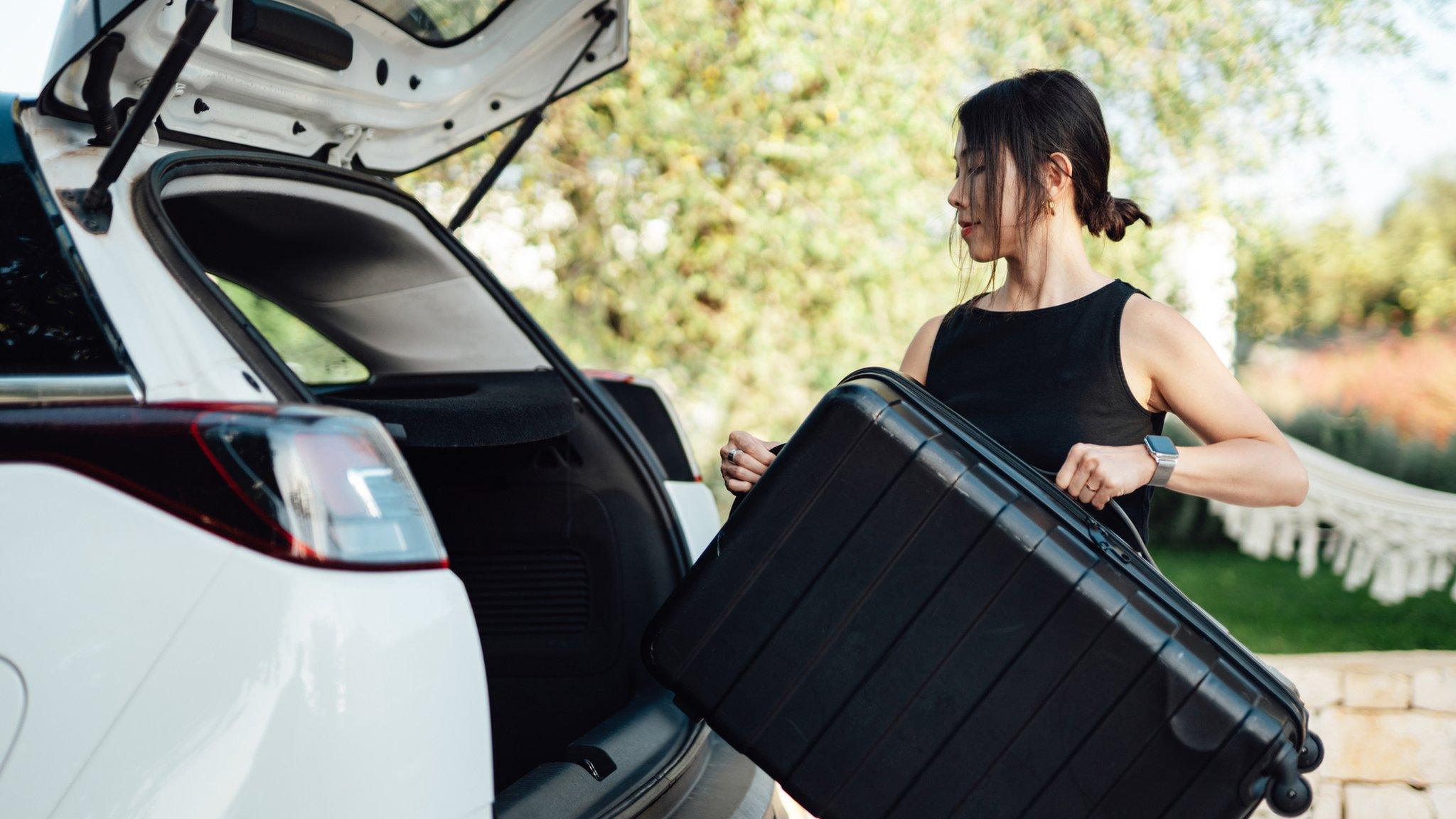
- Published7 April 2023
